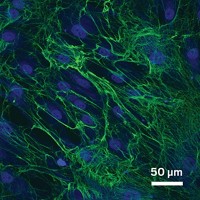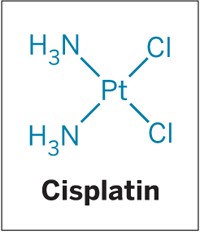Advertisement
Grab your lab coat. Let's get started
Welcome!
Welcome!
Create an account below to get 6 C&EN articles per month, receive newsletters and more - all free.
It seems this is your first time logging in online. Please enter the following information to continue.
As an ACS member you automatically get access to this site. All we need is few more details to create your reading experience.
Not you? Sign in with a different account.
Not you? Sign in with a different account.
ERROR 1
ERROR 1
ERROR 2
ERROR 2
ERROR 2
ERROR 2
ERROR 2
Password and Confirm password must match.
If you have an ACS member number, please enter it here so we can link this account to your membership. (optional)
ERROR 2
ACS values your privacy. By submitting your information, you are gaining access to C&EN and subscribing to our weekly newsletter. We use the information you provide to make your reading experience better, and we will never sell your data to third party members.
Pesticides
A topical gel might protect against pesticide damage to humans
Researchers aim to spare farmers and landscape workers neurotoxic effects
by Megha Satyanarayana
October 28, 2018
| A version of this story appeared in
Volume 96, Issue 43

A group of researchers in India has developed a topical skin gel they hope farmers and landscape workers can use to minimize the neurotoxic effects of organophosphate pesticides (Sci. Adv.2018, DOI: 10.1126/sciadv.aau1780). The gel, called polyoxime, contains a nucleophilic pyridine-2-aldoxime on a chitosan base and works by cleaving the phosphate or thiophosphate group off of pesticides like methyl parathion (MPT) before they absorb into the skin and irreversibly inhibit an enzyme called acetylcholine esterase. The goal, says lead researcher Praveen K. Vemula of the Institute for Stem Cell Biology & Regenerative Medicine, was to create a heat- and cold-stable compound that worked catalytically and would be inexpensive to produce. Initial tests in rats showed that after treatment with the gel, exposing the animals to MPT did not lead to the same decline in active acetylcholine esterase that they saw in either the sham group (gel with no active ingredient) or the untreated group. Acetylcholine esterase, an enzyme involved in the breakdown of a neurotransmitter important for motor function, is the target of many organophosphates, and its off-target activity in humans is of concern because it can lead to nerve damage and paralysis. The team expects to begin human studies in 2019.





Join the conversation
Contact the reporter
Submit a Letter to the Editor for publication
Engage with us on Twitter